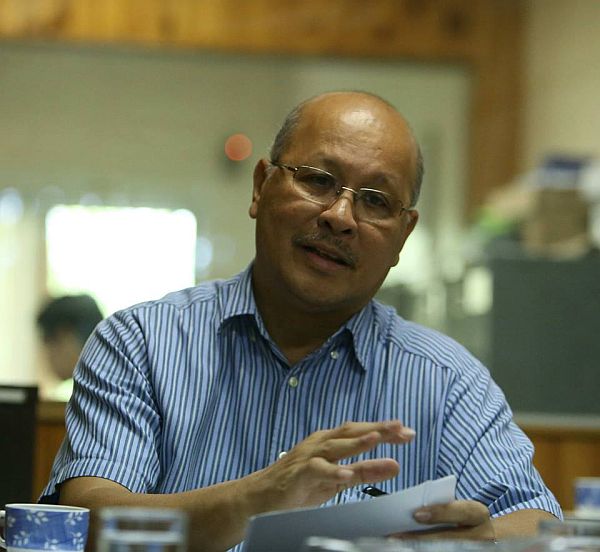
Efren Carreon, National Economic Development Authority in Central Visayas (Neda-7) chief, gives the year’s economic assessment.
CDN PHOTO/LITO TECSON
The passage of the Tax Reform for Acceleration and Inclusion (TRAIN) bill is expected to help improve the retail trade industry in 2018.
With implementation of the TRAIN, which exempts workers with an annual income of P250,000 and below from personal income tax payment, expected to start next year, National Economic Development Authority (Neda-7) regional director Efren Carreon says people will have more money to spend.
“This increase in spending capacity of the working class will be enhanced with the implementation of the tax reform law. There will be an increased demand for consumers goods and services. It will be good for the retail industry,” Carreon said in a roundtable discussion with reporters yesterday.
He added that some retailers in the region have already started to expand not only within the urban areas but also to the countryside.
This is expected to be propelled by the increased consumer spending with the passage of the TRAIN law.
The TRAIN bill was signed by President Rodrigo Duterte last Tuesday. It is the first package of the government’s proposed Comprehensive Tax Reform Program (CTRP) which is seen to generate additional revenue to fund the country’s investment requirements.
But in order to make up for the loss in revenue from income tax, the TRAIN law imposes higher taxes on some products like cars, fuel, tobacco, cosmetic surgery and some sweetened beverages.
However, this is still not a concern, according to Carreon.
“Not all the goods (prices) will increase. Mostly, those that will have higher taxes are fuel, cars, only those who can afford will be affected,” Carreon said.
Employment rate
Based on records from the Neda-7, Central Visayas recorded a 95 percent employment rate for the first semester of 2017.
Carreon said this is higher than the national average of 93.8 percent.
Although these records are only for the first six months of the year as the Neda-7 is yet to finalize its data for the second semester, Carreon explained that this positive impact on employment is also due to the sustained growth of the region’s economy.
Both the TRAIN law and the high employment rate in the region are seen by the Neda to positively contribute to an even strongly growing economic activity for Central Visayas.
“We are full of optimism. We are also excited to see 2018, ushering in a lot of potentials for the region. Central Visayas is expected to continue being one of the fastest growing region in the country,” Carreon said.
Meanwhile, in a press statement, NEDA Socioeconomic Planning Secretary Ernesto Pernia said that even if they are looking forward to the implementation of the TRAIN next year, they will also continue to push for the full implementation of the CTRP.
Based on Neda’s analysis, real gross domestic product (GDP) level will be higher by 0.5 to 1.1 percent by year 2022 with the full implementation of the CTRP.
The full implementation of the CTRP, he said, will also promote equity and raise the needed revenues for the government’s programs and projects in infrastructure, education, and health.
“The implementation of TRAIN is essential as it will increase the spending capacity of the average working Filipino, boost revenue-to-GDP ratio, and fund government’s infrastructure and human capital investment program,” Pernia added in the statement.
MOST READ
LATEST STORIES
Read more...